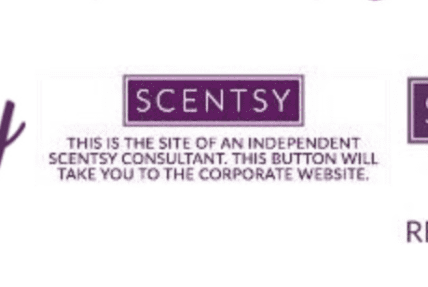When you’re navigating the complex journey of addiction recovery, integrating buddhism 12 steps principles can offer a unique perspective that goes beyond traditional methods. You might find that mindfulness and self-awareness help you identify the root causes of your cravings, allowing for a deeper understanding of your struggles. By embracing compassion—both for yourself and others—you can create a nurturing space for healing. But how do these practices translate into everyday life, and what challenges might you encounter along the way?
Understanding Addiction Through Buddhism
Many people struggle with addiction, often feeling trapped in a cycle of cravings and compulsive behavior. You might find yourself caught in this cycle, seeking temporary relief while facing the consequences of your choices.
Buddhism offers a unique perspective that can help you understand the roots of your addiction. It teaches that suffering arises from attachment and desire, which are central to the addiction experience.
Through the lens of Buddhism, you can see how your cravings might stem from a deeper longing for satisfaction or escape. Instead of labeling yourself as weak or flawed, you can approach your addiction with compassion and curiosity. This mindset allows you to explore the underlying causes without judgment.
Buddhism emphasizes mindfulness and self-awareness, encouraging you to observe your thoughts and feelings without becoming consumed by them. This practice can help you recognize triggers and patterns in your behavior, empowering you to make more conscious choices.
Mindfulness Practices for Recovery
Mindfulness practices serve as powerful tools in addiction recovery, offering you a way to cultivate awareness and presence in each moment. By focusing your attention on the here and now, you can develop a deeper understanding of your thoughts, emotions, and cravings without judgment. This awareness helps you recognize triggers and patterns that contribute to your addiction.
One effective mindfulness technique is meditation. Set aside time each day to sit quietly, focusing on your breath. When your mind wanders, gently bring it back to your breath. This simple practice can ground you, creating a sense of calm that counters the chaos of cravings.
Another beneficial practice is mindful walking. As you walk, pay attention to each step and the sensations in your body. Notice the environment around you—the sounds, colors, and smells. This connection to the present moment can be incredibly soothing.
Incorporating mindfulness into your daily routine, whether through meditation, walking, or even mindful eating, can strengthen your ability to cope with cravings and stress. By embracing these practices, you’ll foster resilience, clarity, and a greater sense of control over your recovery journey.
The Role of Compassion
Compassion plays a crucial role in your addiction recovery journey, both for yourself and others. When you practice compassion, you create a nurturing environment that fosters healing. It encourages you to approach your struggles with kindness rather than judgment, allowing you to acknowledge your pain without feeling overwhelmed by shame.
This self-compassion helps you understand that setbacks are part of the healing process, enabling you to move forward with greater resilience.
Extending compassion to others is equally important. When you show understanding and empathy towards those who are also struggling with addiction, you strengthen your connections and build a supportive community.
This sense of belonging can significantly enhance your recovery experience, allowing you to share your challenges and triumphs openly.
Moreover, compassion can act as a powerful motivator. It reminds you of your intrinsic worth and the importance of caring for your well-being.
By practicing compassion, you cultivate a mindset that prioritizes healing over self-destruction, paving the way for long-term recovery.
In this journey, remember that compassion isn’t a destination but a practice, one that requires ongoing commitment and attention.
Cultivating Self-Awareness
Understanding your feelings and thoughts is a vital part of your recovery journey. Self-awareness allows you to recognize triggers and patterns that contribute to your addiction. By being mindful of your emotions, you gain insight into the underlying issues driving your behavior. This awareness helps you respond to cravings with intention rather than reacting impulsively.
To cultivate self-awareness, start with regular mindfulness practices. Meditation can help you observe your thoughts without judgment. Set aside time each day to sit quietly, breathe deeply, and notice what arises in your mind.
Journaling is another powerful tool; writing down your thoughts and feelings can illuminate patterns and provide clarity. Reflect on your experiences, noting moments when you felt tempted to use and what emotions you were experiencing at the time.
Additionally, consider engaging in self-inquiry. Ask yourself questions like, “What am I feeling right now?” or “Why did I react that way?” This practice deepens your understanding of yourself and fosters growth.
As you develop self-awareness, you’ll find it easier to make conscious choices that support your recovery, leading you to a healthier, more fulfilling life.
Building a Supportive Community
While embarking on your recovery journey, surrounding yourself with a supportive community can significantly enhance your experience. A strong network not only provides encouragement but also fosters accountability, helping you stay committed to your goals.
Engaging with others who share similar struggles can create a sense of belonging and reduce feelings of isolation.
To build a supportive community, consider the following strategies:
- Join local support groups: Look for groups that align with your values and experience, such as 12-step programs or Buddhist recovery circles.
- Connect with like-minded individuals: Seek out friends or acquaintances who understand your journey and can offer emotional support.
- Participate in community events: Attend workshops, retreats, or meditation sessions that focus on recovery and mindfulness.
- Utilize online resources: Engage with online forums or social media groups dedicated to addiction recovery and Buddhist practices.
Conclusion
Integrating Buddhist principles into your addiction recovery can be a transformative journey. By embracing mindfulness, compassion, and self-awareness, you can navigate the challenges of recovery with greater resilience. Remember, setbacks are just part of the process, and each experience offers valuable lessons. Surrounding yourself with a supportive community enhances your healing and connection. As you continue this path, you’ll discover a deeper sense of peace and understanding, helping you heal your soul and reclaim your life.





